What do you need — a coach or a mentor?
Understanding the similarities and differences between coaching and mentoring will help you decide if you need a coach or a mentor to help you accomplish goals more efficiently while improving your work/home balance.
In a nutshell, coaches ask questions that help you find answers, while mentors provide their past experiences as examples from which to answer your questions. Coaching vs. mentoring is simply approaching your problem from opposite perspectives.
Going deeper into the coach versus mentor quandary will bring more clarity as we define both roles and discuss how they are similar yet different. Then we’ll share what to look for in an executive coach, discuss how you can find one, and how to make the best use of your coach.
Coaching Defined
A coach asks questions to help you evaluate a situation, set goals, and accomplish your objectives. This is called “guided discovery”. Coaches usually don’t need deep or all-inclusive knowledge regarding your field of endeavor because you’re already an expert. By answering your coach’s guiding questions, you discover the best solutions inside yourself, from team members, or through self-education.
Coaches excel at helping business leaders identify and solve specific problems to improve self-performance and your organization’s KPIs.
Mentoring Defined
A mentor typically takes a “been-there-done-that” approach, providing answers to questions and solutions to problems and opens doors. Mentoring is a mutually beneficial relationship between a person with deep experience in a field and a less knowledgeable individual who wishes to advance in it. The mentee learns from the mentor’s expertise, and the mentor benefits from the mentee’s increased performance.
Mentoring can be a formal or informal relationship with a superior, friend, or family member. If you’re fortunate enough to have a mentor, they will answer your questions and provide assistance to smooth your path.
Coaching and Mentoring: What Are the Similarities?
The many similarities between coaching and mentoring often confuse people searching for assistance. Both approaches to personal and business growth seek to assist individuals or groups in improving their circumstances.
Coaching and mentoring also have these points in common as both:
- Produce the best results when the personal chemistry clicks
- Generally require a series of meetings
- Often include personal agreements or even signed contracts
Coaching and mentoring are so similar that even coaches often confuse the two. Knowing the key differences between coaching and mentoring will help you decide which approach will work best for you.
Coach and Mentor: What Are the Differences?
There are six more crucial differences besides the opposite approaches of discovering or being given answers that coaching and mentoring take in helping you.
The Same Path or a Different Path?
Mentors guide you along a path comparable to theirs. They can share what worked for them and how to avoid the pitfalls where they made mistakes.
Coaches help you create your path by asking guiding questions and sharing examples of how other executives have solved similar issues.
Directive or Nondirective?
A mentor is often superior in position, age, or expertise and can direct your path forward.
Your coach is nondirective, encouraging you to discover and create your own path. Which style is the most effective and rewarding for you?
Do You Already Have Deep Experience, or Do You Need It?
A mentor needs to be highly experienced in your field and, ideally, will be in a position to pave the way for your promotion or business success.
A coach doesn’t need to be in a position to promote you or need in-depth experience because they help you find your answers.
What Age Level Suits Your Situation?
Mentors are usually older and will undoubtedly be far more experienced than mentees. However, reverse mentoring is where a younger person mentors an older person, especially in the tech field.
A coach of any age who is skillful at guiding others can be of immeasurable value to older, more experienced leaders who may only need help to focus and discover answers within themselves.
Besides looking at the differences between coaching and mentoring, it will help your search for the right help to consider the qualities to look for in an executive coach.
Long or Short Term?
Mentoring tends to be a long-term relationship that can span years or even an entire career.
Coaching usually takes a few months to address a particular issue or bring a specified change.
In-House or Outsourced?
Mentors often come from within the business because they have the deep knowledge and wealth of contacts the mentee needs.
Coaches are usually sourced from outside because their role is to help executives create solutions themselves.
In-Person or Virtual?
Meetings with mentors tend to be in person because the two parties work nearby in the same organization.
Coaching can be very effective virtually or in person, depending on your needs and which method works best for you. Many executives prefer the ease of online meetings, while others enjoy the nuances of in-person meetings.
Coaching and mentoring have critical differences, but deciding on a particular coach brings up another set of criteria for your consideration.
What To Look For in an Executive Coach

More and more busy business leaders realize that they need help from an executive coach on both personal and business levels as they struggle to cope with the ever-increasing barrage of demands on their time and energy imposed by modern life.
But what do you look for in a coach?
- Accreditation from a reputable coaching organization ensures a level of professionalism.
- A proven track record of businesses they’ve helped.
- The ability to recognize what’s being said and what is unexpressed.
- A realization that actual change begins inside people, not with their environment.
- Familiarity with your field. They don’t need to be experts, but they must be familiar with the basics.
- A willingness to learn. Like medical professionals, lawyers, and accountants, coaches need to keep themselves current with new and evolving practices. And they may need to learn your business practices to give effective guidance.
The most critical aspect to look for is chemistry. Coaching is a partnership between you and your coach. That relationship can grow and blossom into unforeseen benefits if you hit it off. Getting the chemistry right is why most executive coaches offer an exploratory first session.
Where To Find Coaching and Mentoring
Coaching and mentoring have exploded in the last few years as overwhelmed executives realize they can’t go it alone. This, and the great resignation, has led to a plethora of coaches and mentors popping up. You can find them through:
- Asking friends, family, and associates: Searchers find 46% of coaches through word-of-mouth, but do your homework before jumping in.
- Upwork and Fiverr: Read the descriptions and reviews carefully.
- LinkedIn search: You’ll get detailed information about each individual presented more professionally than on freelancing platforms.
- Google search: All you really know is that they understand SEO marketing to get listed high in search engines.
The above methods of finding coaching and mentoring are time-consuming and fraught with chance. To jump ahead safely in your coach/mentor quest, call, email, or chat with Champion PSI and we’ll help you find precisely what you need.
How To Get the Most From Your Executive Coach
You can use an executive coach in the standard way to solve immediate problems, but a much more effective way to use your executive coach is to proactively improve organizational structure, team leadership alignment, and hiring. You create a culture that solves problems before they appear.
Proactive executive coaching for individuals and teams can result in happier, more motivated, and more productive employees that naturally solve problems. A recent study found that coaching produced an ROI of an astounding 788%.
Understanding the Process of Coaching

Now that you know the key differences between coaching and mentoring and how to find and get the most out of your coach, let’s take a quick look at the coaching process. You’ll be able to plan and organize for coaching and mentoring success when you know the definable steps.
The first step is realizing that you need a coach. A seasoned business and executive coach can help you achieve a life/work balance that addresses personal and business goals. Read the ten signs that a coach can benefit you.
The next step is scheduling a discovery call with your coach. On your 30-minute discovery call with Champion PSI, we’ll discuss your vision to help you keep sight of your original inspiration. After exploring your strengths and weaknesses, we’ll create an action plan and determine a realistic timeline to achieve your goals.
Last, we’ll determine your preferred communication style and establish the cadence of our meetings so that you can experience the ultimate level of growth in a reasonable time frame.From your discovery call, you’ll better understand your challenges and how our structured, personalized expertise can help you.










